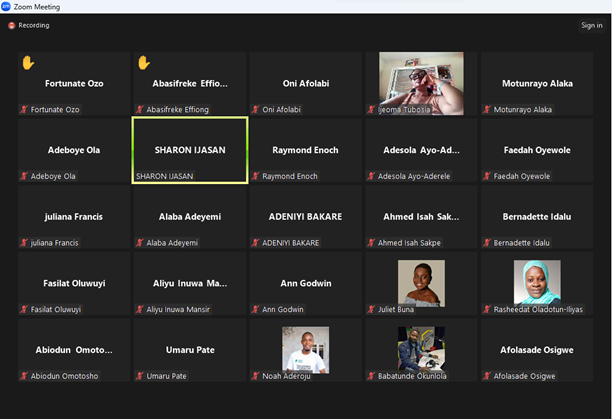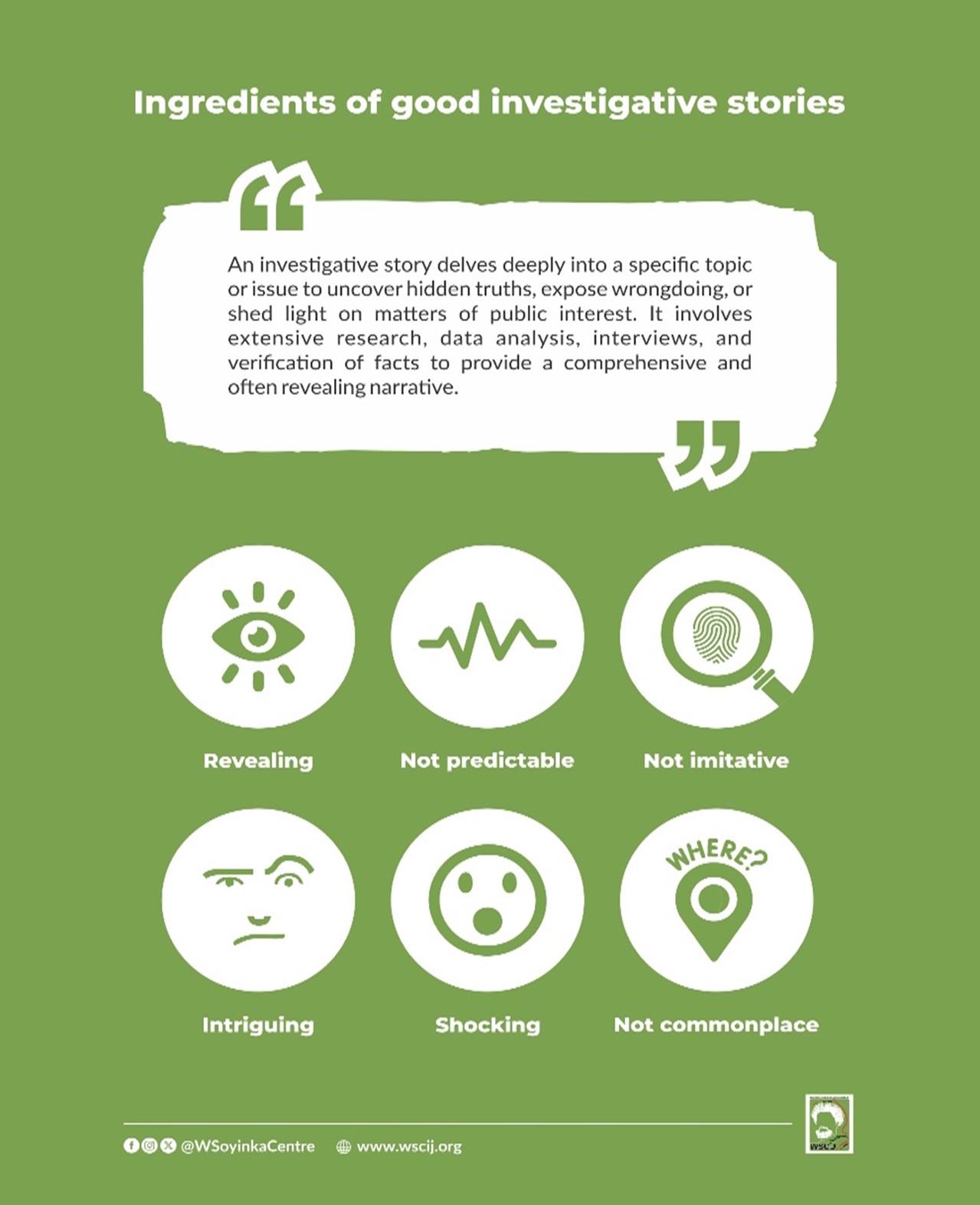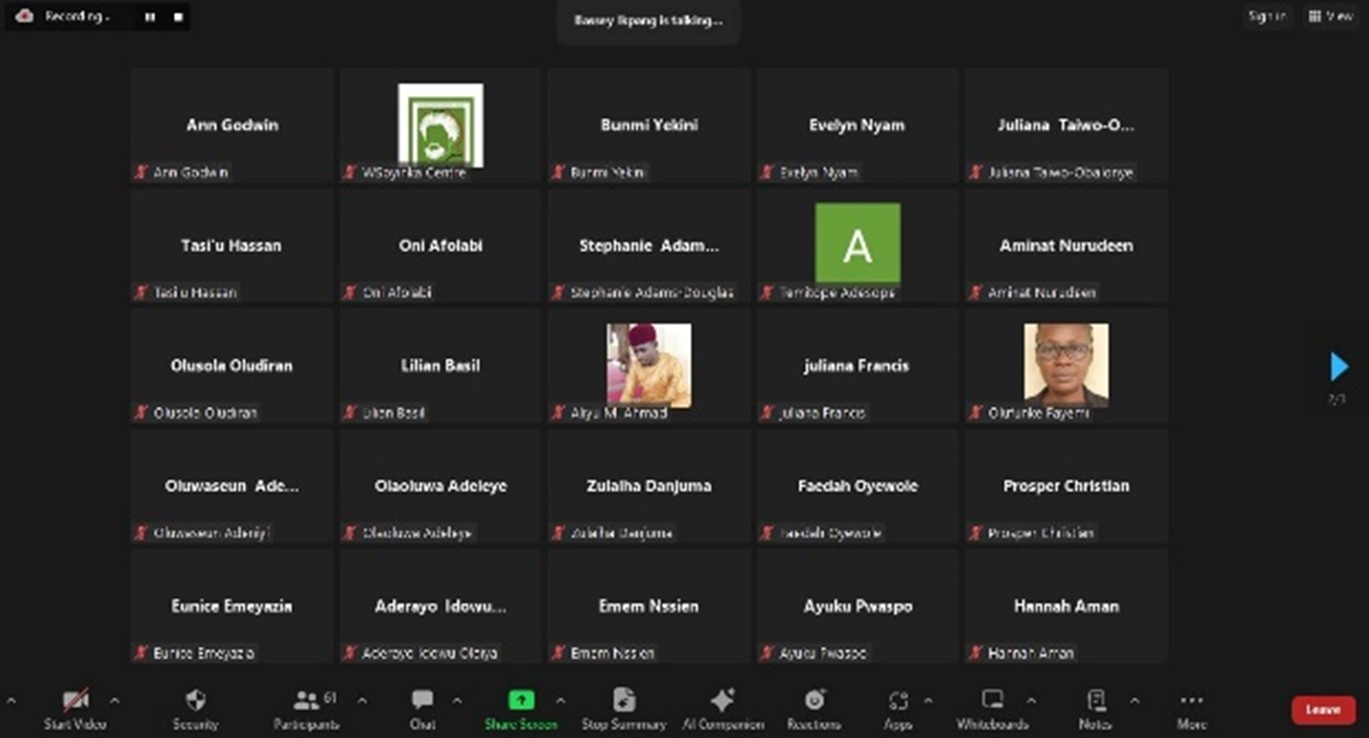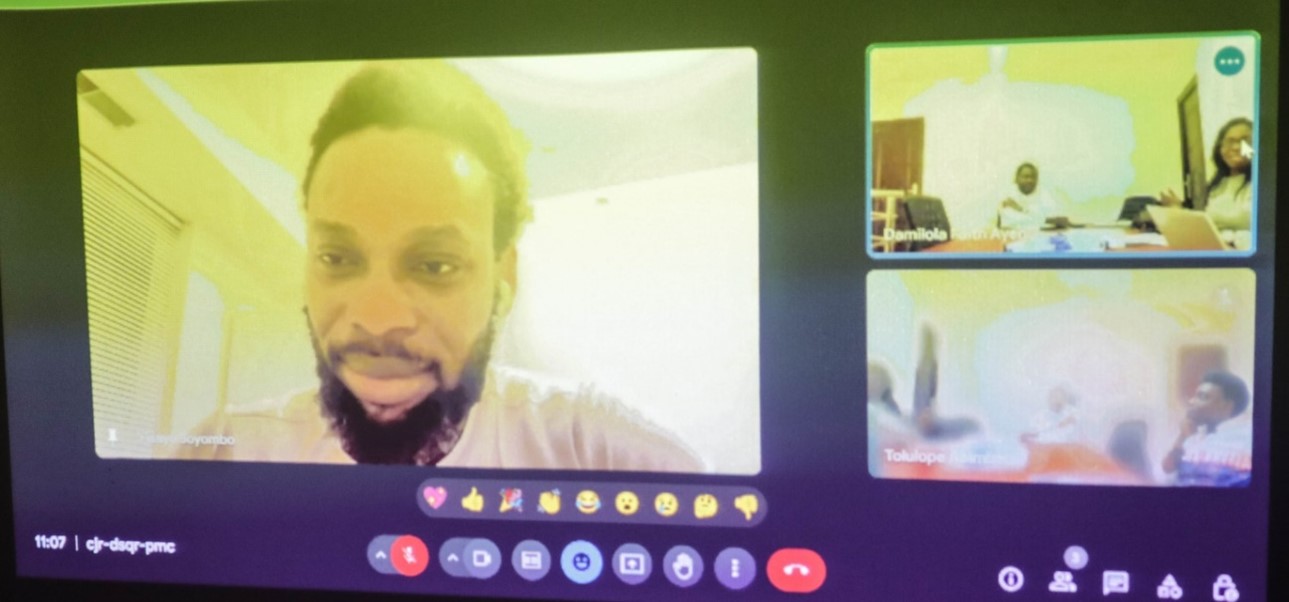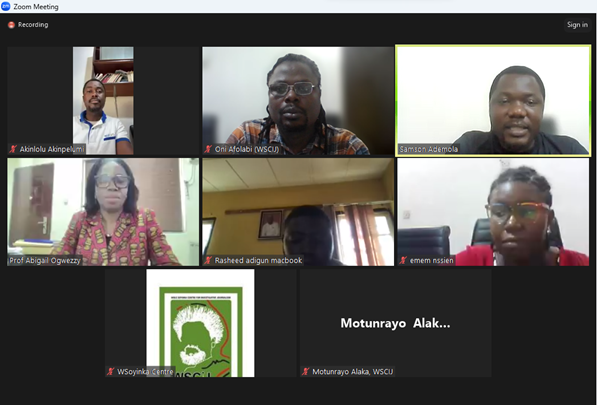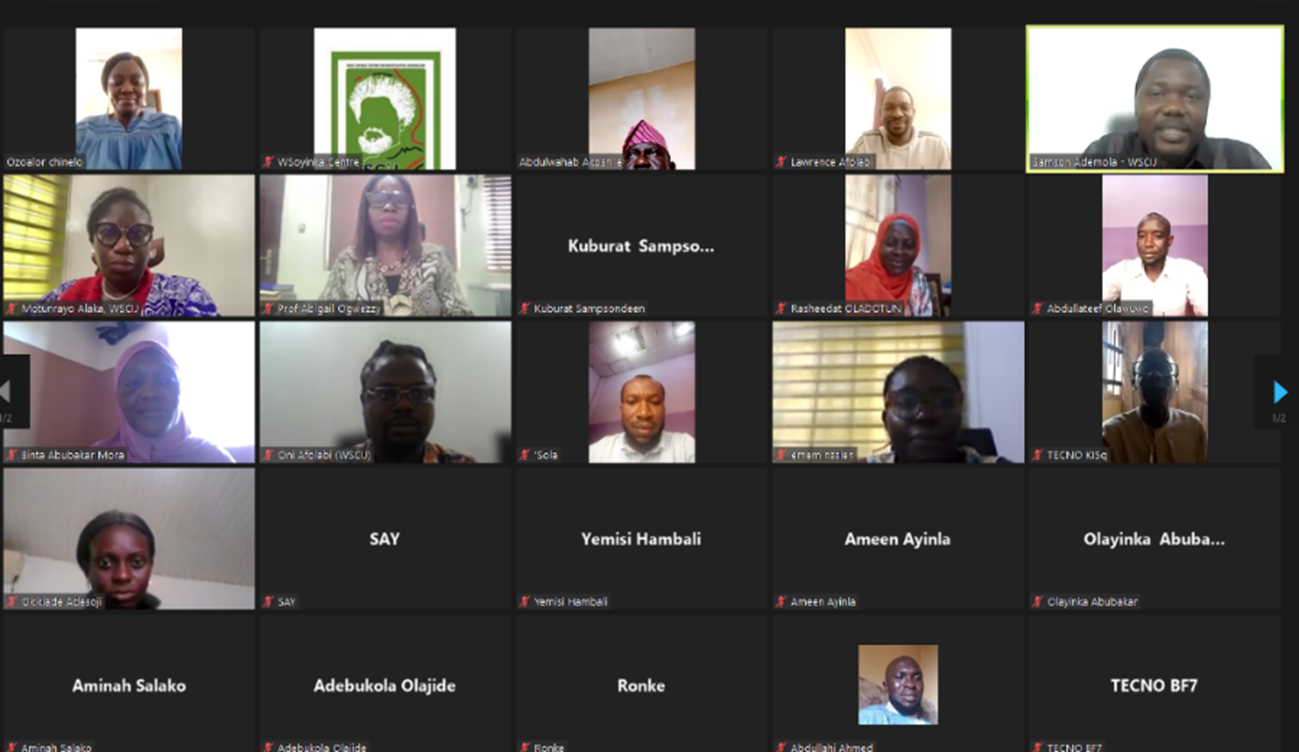Panellists at the virtual Wole Soyinka Award for Investigative Reporting (WSAIR) Q&A session have elaborated on ethical journalism, issue-based reporting, quality writing, audience engagement and impactful storytelling as essential elements for excellence in investigative reporting. The event hosted by the Wole Soyinka Centre for Investigative Journalism (WSCIJ) served as an eye-opener for journalists and addressed concerns about the annual award.
In her opening remarks, Motunrayo Alaka, Executive Director/CEO of WSCIJ, highlighted the role of the award beyond recognising outstanding investigative journalists. She emphasised its significance as a platform for fostering crucial conversations on media sustainability in Nigeria. Providing an overview of the award’s impact, she highlighted the independence of the judges’ board from WSCIJ’s staff as well as entry codification to anonymise works received and maintain the award’s credibility. Alaka urged journalists to prioritise the impact of their stories over the mere pursuit of awards because impactful storytelling garners attention and accolades organically.
Umaru Pate, Vice Chancellor, Federal University of Kashere, Gombe State, lauded the award’s initiative in acknowledging and supporting investigative journalism in Nigeria. While speaking on some technicalities of investigative writing, he noted the importance of succinct writing and carrying the audience along. Pate noted the award’s motivational impact on Northern journalists and its role in providing a platform for emerging investigative journalists to gain national recognition while focusing on grassroots issues.
On her part, Abigail Ogwezzy-Ndisika, Director, Institute of Continuing Education, University of Lagos, said judges consider writing style and prioritise investigative reports crafted to captivate readers. The mass communication scholar elaborated on the significance of reports on human rights issues. Highlighting the era of media convergence, she encouraged journalists submitting entries for online categories to incorporate infographics and videos into their stories. She also called on investigative reporters to humanise their narratives, utilise technology and maintain precision in storytelling.
While sharing insights on crafting compelling investigative narratives, Theophilus Abbah, Executive Director of Daily Trust Foundation, noted that the essence of investigative reports is to uncover concealed information and avoid repetition of past issues. Abbah highlighted transparency, ethical conduct, and the presentation of verifiable quantitative and qualitative data as critical areas the judges look out for. He encouraged investigative journalists to engage in thorough research, consult diverse sources, persevere through setbacks, and steer clear of armchair journalism.
Juliana Francis, Deputy Editor, The Eagle Online, stressed the importance of self-motivation and the quest for personal growth for up-and-coming investigative journalists. The recipient of the WSAIR (2014 and 2022) and the 2014 WSCIJ-Nigerian Investigative Reporter of the Year emphasised the vital role of journalistic ethics as a driving force during challenging times. She urged media practitioners to focus on a specific story angle and shun broad narratives in their storytelling endeavours.
Deji Badmus, Founder, TV360, expressed disappointment at the low turnouts and quality of entries in the television category. He noted that television is a powerful tool for change and advised journalists to prioritise their approach and story treatment to distinguish a feature from an investigative story. Badmus shared some story ideas that investigative journalists can pursue at the national and subnational levels of government as he enjoined them to approach each investigation with an open mind.
Explaining photo category criteria, Boye Ola, Deputy Provost, Nigerian Institute of Journalism (NIJ), charged photojournalists to focus on issues of human rights abuses, corruption, and other issues that are newsworthy and capable of evoking emotions. He revealed that journalists who focus on reporting only events will struggle to stand out and win awards.
Three-time WSAIR editorial cartoon category winner, Mike Asukwo, admonished cartoonists to be intentional while selecting works for submission. The Senior Editorial Artist at BusinessDay highlighted the significance of precise text, strong drawing skills and humour for creating impactful cartoons. He urged cartoonists to leverage their medium to offer critical commentary on social and political issues while fostering public accountability.
The Wole Soyinka Award for Investigative Reporting rewards, promotes and encourages best practices in journalism works from the print, radio, television, photo, online, and editorial cartoon broad categories as well as from other special categories which focus on themes ranging from regulatory failures, corruption in the public and corporate spheres, and human rights abuses in the country. After 18 editions, the award has produced 119 finalists, awarded 61 winners, and commended 21 works. 13 reporters have been named WSCIJ-Nigerian Investigative Reporter of the Year while honorary awards have been bestowed on 29 recipients.

